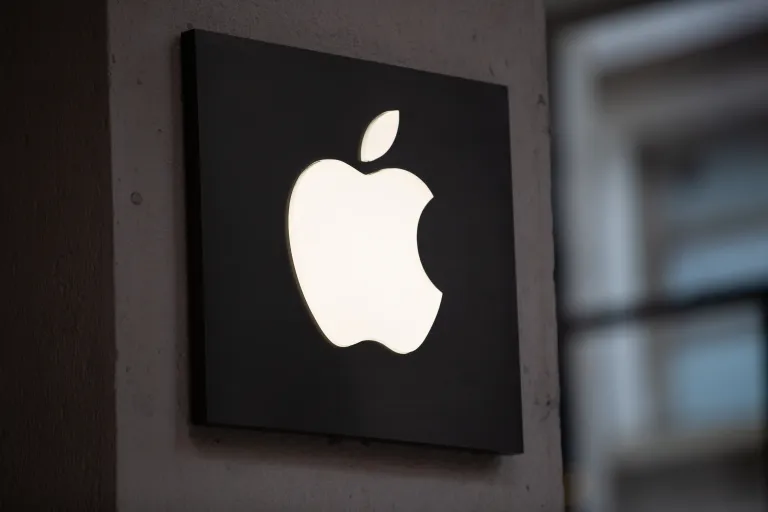Apple Earned Over $10 Billion from U.S. App Store Commissions in 2024
Wondering how much Apple makes from the U.S. App Store? In 2024, Apple generated over $10 billion from App Store commissions in the United States alone, according to a detailed analysis by app intelligence platform Appfigures. This massive figure reflects Apple's growing influence on the mobile app economy, showcasing just how critical App Store commissions have become to its overall financial success. If you’re a developer, investor, or tech enthusiast looking for insights into Apple’s App Store revenue, developer payouts, and commission structures, this report paints a clear picture of an ecosystem that's bigger than ever.
Image Credits:Alexander Pohl / NurPhoto / Getty ImagesU.S. App Store Revenue Growth: A Look at the Numbers
Between 2020 and 2024, Apple’s commission revenue from the U.S. App Store more than doubled, soaring from $4.76 billion to $10.1 billion. This growth underscores not only the rising consumer spend on mobile apps and games but also Apple's strategic monetization of its platform through commissions.
Developers in the U.S. collectively generated $33.68 billion in gross app revenue during 2024 using Apple’s integrated payment systems. After Apple took its cut, developers retained $23.57 billion, demonstrating the still-significant earning potential for successful apps despite commission fees.
Global App Store Revenues Tell a Bigger Story
While Apple's U.S. App Store performance was impressive, the global numbers were even more staggering. Although Apple reported $104 billion in total billings for digital goods and services in 2022, Appfigures found that App Store-specific revenue was actually $61.5 billion globally that year, growing to $91.3 billion by 2024.
From this, Apple is estimated to have earned over $27.39 billion in global commissions in 2024 alone. This discrepancy highlights the complexity of Apple's revenue reporting, where "billings and sales" figures often include more than just direct App Store transactions.
Why Appfigures' Data Differs from Apple’s Reporting
The apparent difference between Apple’s numbers and Appfigures' estimates is rooted in Apple's methodology. When Apple reports "billings and sales," it doesn't strictly refer to App Store transactions. Instead, Apple also counts a share of external purchases, such as when a subscription is bought on a website but primarily used on Apple devices.
By attributing portions of non-App Store transactions to its platform, Apple amplifies its influence on the broader digital economy. This method, while technically accurate by Apple's standards, creates confusion when comparing direct App Store revenue to broader ecosystem earnings.
Court Ruling Forces Major Changes to App Store Policies
The timing of this revenue analysis couldn't be more significant. A recent U.S. court ruling found Apple in "willful violation" of a 2021 injunction stemming from its antitrust battle with Epic Games, maker of Fortnite. The court determined that Apple unfairly continued to impose a 27% commission on transactions happening outside its App Store ecosystem, despite developers directing users to external payment links.
Previously, Apple introduced web linking exceptions but maintained tight control, including "scare screens" warning users of potential risks outside the App Store. These practices have now been ruled anticompetitive, forcing Apple to revise its U.S. App Store policies.
Developers Now Gain Greater Freedom
Following the court decision, Apple is now required to allow developers to link out to external payment methods without facing commissions or restrictions. Already, major companies like Spotify, Amazon Kindle, and Patreon have begun implementing external payment systems to avoid Apple’s high commission fees. Smaller developers, such as the popular game emulator Delta, are also finding new ways to support themselves through direct memberships and Patreon subscriptions.
This shift represents a turning point for app developers aiming to maximize earnings and reduce dependence on App Store commissions. However, Apple’s lucrative hold over the mobile payments landscape remains formidable, especially as digital goods and services continue to thrive.
The Future of App Store Commissions and Developer Revenue
Apple's dominance in mobile commerce is unlikely to wane anytime soon. Despite regulatory pressures and evolving court decisions, the App Store remains a primary channel for digital sales. High-value categories such as gaming apps, subscription services, financial apps, and education technology continue to drive significant revenue streams, both for Apple and for developers.
For businesses and developers focused on maximizing profitability, understanding the latest App Store policies, commission structures, and revenue reporting practices is more critical than ever.
As Apple adapts to new legal challenges and market demands, developers who stay informed and agile will be best positioned to succeed in the new era of app monetization.


